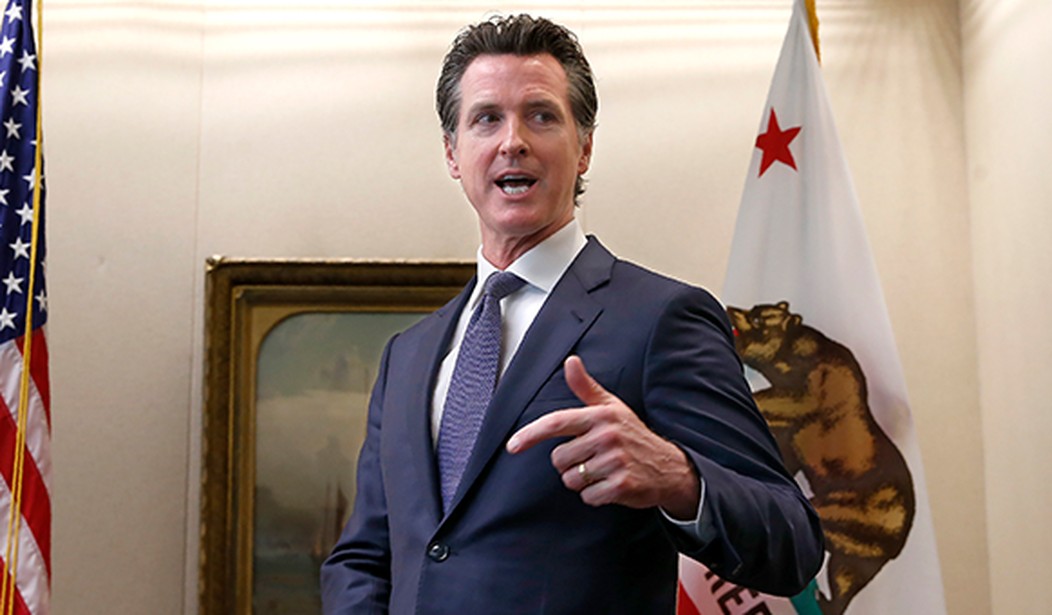Top News
California is Facing a Huge Budget Deficit, Bad News for State Democrats

Life was good so long as Democrats could spend at will. California has had budget surpluses for the past few years and that was great news for Gov. Newsom and state Democrats while it lasted.
Newsom’s first term in office was buoyed by record-smashing surpluses of more than $100 billion in some years. The money allowed him and his Democratic allies in the state Legislature to greatly expand government, including paying for guaranteed health insurance for all low-income adults regardless of their immigration status and free lunches for all public school students.
But the party is officially over now. Last year the state misjudged how much revenue would be brought in by taxes. Now the state is facing a projected deficit of $68 billion next year.
A series of damaging storms last winter …were so bad that state officials decided to give people and businesses more time to pay their taxes this year. Californians did not have to pay their 2022 taxes until November of this year. That meant Newsom and the Legislature had to come up with a budget over the summer without knowing how much money the state had to spend.
It turns out that they badly misjudged how much taxes people and businesses would pay. The nonpartisan Legislative Analyst Office said tax collections were off by $26 billion, a major driver of the deficit. When combined with the economic slowdown California has been facing since last year, it leads to a predicted deficit of $68 billion, Legislative Analyst Gabriel Petek announced Thursday.
That is the biggest deficit by dollars in state history, but previous deficits have been larger as a percentage of state spending. California’s current budget tops $300 billion, the largest by far of any state.
And that’s just to start. Unless something changes it’s continued deficits for at least the next six years.
Analysts anticipate an additional shortfall of $30 billion per year from 2025-26 through 2027-28, for a potential deficit of $155 billion over a six-year period.
Generally speaking, California’s economy isn’t doing that well relative to the national economy.
California has been in a downturn since 2022, and state finance officials had been warning of a darkening fiscal outlook, the report noted…
“Home sales are down by half,” the legislative analyst reported, “largely because the monthly mortgage to purchase a typical California home has gone from $3,500 to $5,400.” Tech companies have also been hit hard, the report found, with an 80 percent drop since 2021 in the number of California companies that have gone public.
As a result, the report found, the state has added nearly 200,000 workers to its jobless ranks since last year, and the unemployment rate has risen to 4.8 percent from 3.8 percent, nearly a full percentage point higher than the national unemployment rate.
And of course the state is still shrinking for the first time in its history, thanks largely to people moving out to other states.
California recently passed a minimum wage law for health care workers which will gradually increase pay up to $25 an hour. With the budget deficit coming, Newsom is now trying to renegotiate that agreement.
Newsom told The Times last week that his staff has “been working behind the scenes” with Democratic leaders in the Legislature on how to move forward with the minimum wage law in light of state budget concerns. The changes, which would have to be approved by lawmakers next year, were “all part of an understanding” with labor leaders before he signed the bill, Newsom said…
Senate Bill 525, the healthcare minimum wage law, was among the last bills to receive the governor’s signature and, according to recently released Department of Finance estimates, the most expensive.
Under the law, workers at large healthcare facilities will earn $23 an hour starting in June 2024, $24 an hour in 2025 and $25 in 2026. That applies to all levels of staff, not just care providers, including launderers and hospital gift shop workers…
The Department of Finance said publicly in November, after Newsom signed the legislation, that the wage hike for healthcare workers would cost $4 billion in 2024-25, the first full fiscal year after implementation begins.
There’s nothing in the existing law he signed that would allow the governor to do this. He’s just hoping legislators will agree to change it now that the state can’t afford it. Other options on the table include declaring a financial emergency so he can tap reserves and reducing the amount of money being given to schools to the mandated minimum. That last one won’t be popular with teachers unions.
One thing the state could stop funding is San Francisco’s unsustainable public transportation system. Last summer the state doled out $5 billion to keep the system afloat a little longer. Clearly that’s not something Sacramento can afford to keep doing.
Read the full article here


















